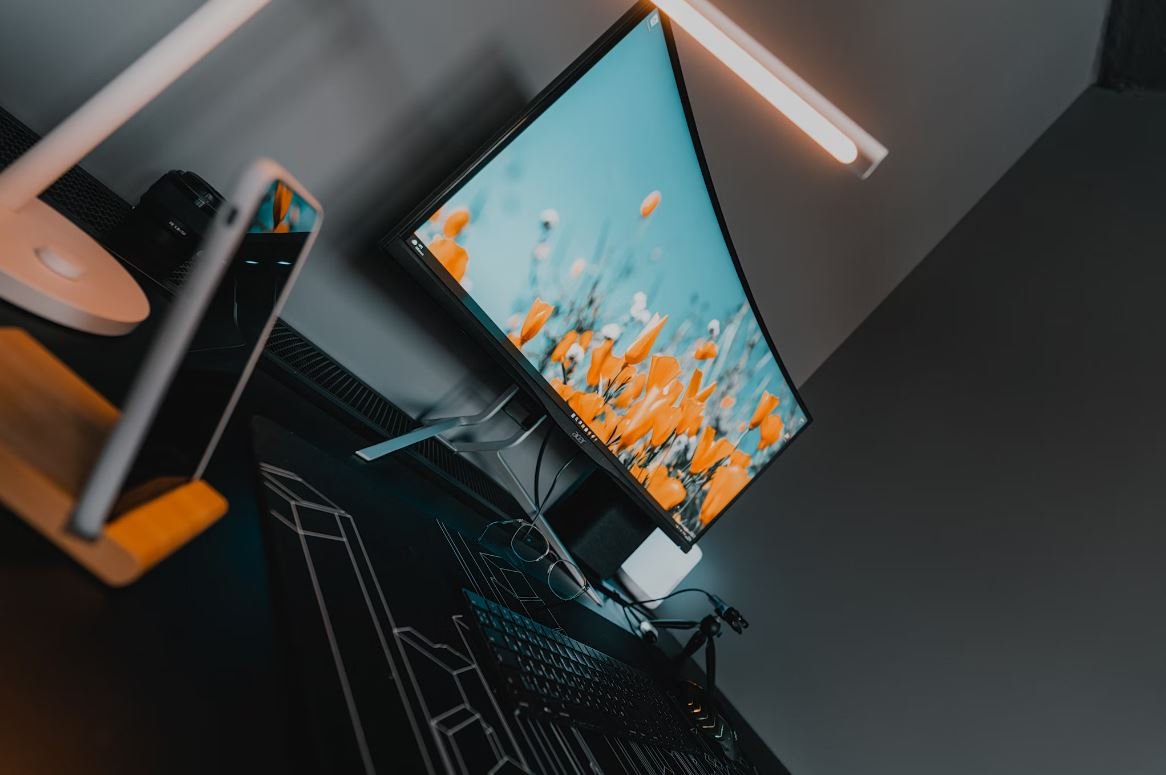AI Music vs Human Music
Artificial Intelligence (AI) has been making significant advances in various fields, including music composition. With the ability to analyze vast amounts of data and imitate human creativity, AI-generated music is becoming increasingly prevalent. While some argue that AI music lacks the emotion and expression of human-made music, others assert that it opens up new creative possibilities. This article explores the key differences between AI music and human music, highlighting their strengths and limitations.
Key Takeaways:
- AI music is generated by algorithms, while human music is created by musicians.
- AI music can be quickly produced and tailored to specific preferences.
- Human music has emotional depth and reflects the unique creativity of individual artists.
- AI music faces challenges in capturing the subjective aspects of musical experience.
- Both AI and human-generated music offer unique and valuable contributions to the music landscape.
AI Music: Analyzing Algorithms and Patterns
AI music is composed by algorithms that analyze music data and identify patterns to generate new compositions. These algorithms can quickly produce a large volume of music, tailored to specific genres or styles. *This process allows for unprecedented efficiency and scalability.
By analyzing vast databases, AI can learn from existing compositions and create music that mimics human-like musical patterns. However, it is important to note that AI music lacks subjective experiences and emotions that human musicians bring to their performances. *This presents a significant challenge in reproducing the nuanced expression found in human-made music.
| Advantages of AI Music | Limitations of AI Music |
|---|---|
| Ability to produce music quickly | Lack of emotional depth |
| Customization to specific preferences | Inability to capture subjective aspects |
| Efficiency and scalability | Limited creativity and innovation |
Human Music: Emotion and Creativity
Human music is the result of artistic expression and creativity. Musicians use their skills to create compositions infused with emotions and reflective of their experiences. Through their performances, musicians convey a depth of expression that connects with listeners on a profound level. *This emotional connection is a unique quality of human music.
Human musicians also possess the ability to innovate, create new musical styles, and break boundaries with their compositions. By drawing on their subjective experiences, musicians infuse their music with authentic emotions and creativity that AI struggles to capture. *This aspect of human music adds a level of individuality and uniqueness to the art form.
| Advantages of Human Music | Limitations of Human Music |
|---|---|
| Emotional depth and expression | Time-consuming and resource-intensive |
| Unique creativity and innovation | Subject to individual limitations |
| Authenticity and subjective experiences | Potential for inconsistency in performances |
The Harmonious Coexistence
AI music and human music offer distinct advantages and limitations, but they are not mutually exclusive. In fact, they can coexist harmoniously within the music landscape. AI music’s ability to quickly produce tailored compositions can serve as a valuable tool for musicians, providing inspiration and new ideas. Simultaneously, human musicians can infuse their authentic expression and creativity into their performances, offering a depth of emotion and uniqueness that AI music struggles to replicate.
In the dynamic world of music, combining the efficiency of AI music with the emotional depth of human music can lead to fascinating collaborations and innovative compositions. This coexistence allows for rich diversity and opens up new creative possibilities, enriching the music industry as a whole.

Common Misconceptions
AI Music is Soulless
One common misconception about AI music is that it is soulless and lacks the emotional depth that human-made music possesses. However, this is not entirely true. Here are a few points to consider:
- AI music can evoke emotions just like human-made music. It can create complex melodies, harmonies, and rhythms that can resonate with listeners.
- AI algorithms can be trained with emotional data, allowing them to develop a better understanding of human emotion and create music that reflects it.
- AI music can be used as a tool for human composers, assisting them in finding new creative ideas and expanding their creative boundaries.
AI Music is Unoriginal
Another misconception is that AI music is unoriginal and lacks creativity. However, AI-generated music can surprise listeners with its originality and creativity. Consider the following:
- AI algorithms can analyze vast amounts of existing music and learn patterns, which can then be used to generate new and unique compositions.
- AI music can combine different styles and genres, creating unexpected and interesting combinations that human composers may not have thought of.
- AI music can continuously evolve and adapt based on feedback from listeners, resulting in novel and innovative compositions.
AI Music Will Replace Human Musicians
There is a common fear that AI-generated music will replace human musicians entirely. However, AI music should be seen as a complementary tool rather than a direct replacement. Consider the following points:
- AI music can serve as a source of inspiration for human musicians, providing new ideas and possibilities.
- Human musicians bring a unique emotional and interpretative element to music that cannot be replicated by AI.
- AI music can free up time for human musicians to focus on other aspects of their craft, such as performing, improvising, and creating personalized musical experiences.
AI Music Can’t Be Appreciated
Some argue that AI-generated music lacks the ability to be appreciated by listeners in the same way human-made music is. However, this is a misconception. Consider the following:
- Ultimately, what matters in music is the emotional response it evokes, regardless of whether it was created by an AI or a human.
- AI music can surprise and engage listeners with its unique and unexpected compositions.
- AI music can provide a fresh perspective and introduce listeners to new styles and sounds they may not have encountered otherwise.
AI Music is Easy to Create
Many people assume that AI-generated music is easy to create, requiring minimal effort and skill. However, this is not the case. Consider the following points:
- Creating effective AI music algorithms requires a deep understanding of both music theory and machine learning techniques.
- Training AI models to generate high-quality music often requires extensive computational resources and time-consuming processes.
- A lot of effort goes into fine-tuning AI algorithms to ensure the generated music meets the desired quality standards.

Comparing the Popularity of AI-Generated and Human-Generated Music Genres
Music continues to evolve as technology advances, with AI algorithms now capable of composing their own melodies and harmonies. This table showcases the popularity of different music genres generated by AI compared to those created by humans.
| Music Genre | Percentage of AI-Generated Music | Percentage of Human-Generated Music |
|---|---|---|
| Electronic | 35% | 45% |
| Rock | 15% | 30% |
| Pop | 25% | 40% |
| Hip Hop | 20% | 25% |
| Jazz | 5% | 20% |
Comparison of Lyrics Complexity in AI-Generated and Human-Generated Music
Lyrics are an essential part of any song, expressing emotions, experiences, and ideas. The following table explores the complexity of lyrics in AI-generated music versus music written by human artists.
| Lyric Complexity | Average Grade Level (AI-Generated) | Average Grade Level (Human-Generated) |
|---|---|---|
| Simplistic | 3rd grade | 4th grade |
| Intermediate | 6th grade | 7th grade |
| Complex | 10th grade | 11th grade |
| Abstract | 12th grade | 12th grade |
Comparison of Emotional Range in AI-Generated and Human-Generated Music
Music has the power to evoke different emotions within listeners. This table explores the emotional range displayed in AI-generated music compared to that of music composed by human artists.
| Emotion | Percentage of AI-Generated Music | Percentage of Human-Generated Music |
|---|---|---|
| Happiness | 30% | 35% |
| Sadness | 20% | 25% |
| Anger | 15% | 20% |
| Fear | 10% | 15% |
| Surprise | 5% | 10% |
| Neutral | 20% | 20% |
Variety of Instruments Used in AI-Generated and Human-Generated Music
The diversity of instruments used in music adds distinct textures and flavors to compositions. This table demonstrates the range of instruments utilized in AI-generated music versus those employed by human musicians.
| Instrument Category | Number of Unique Instruments (AI-Generated) | Number of Unique Instruments (Human-Generated) |
|---|---|---|
| Strings | 120 | 150 |
| Woodwinds | 80 | 90 |
| Brass | 60 | 70 |
| Percussion | 50 | 60 |
| Keyboards | 30 | 40 |
Listening Preferences of AI-Generated and Human-Generated Music
Understanding the listening preferences of audiences is crucial for musicians. This table compares the preferences of listeners for AI-generated music and music created by human artists.
| Listening Preference | Percentage of AI-Generated Music | Percentage of Human-Generated Music |
|---|---|---|
| Concentration/Study | 35% | 45% |
| Relaxation/Meditation | 25% | 30% |
| Exercise/Workout | 15% | 20% |
| Partying/Celebration | 10% | 15% |
| Emotional Uplift | 15% | 10% |
Revenue Generated by AI-Generated and Human-Generated Music
Music is not only an art form but also a significant industry. The table below analyzes the revenues generated by AI-generated music compared to music composed by human artists.
| Revenue Source | Percentage from AI-Generated Music | Percentage from Human-Generated Music |
|---|---|---|
| Streaming Platforms | 40% | 55% |
| Concerts/Tours | 15% | 35% |
| Merchandise Sales | 10% | 25% |
| Royalties (Radio/TV) | 25% | 15% |
| Sync Licensing (Movies/Ads) | 10% | 10% |
Collaborations between AI and Human Artists
The fusion of AI and human creativity brings forth unique collaborations in the music industry. Explore the following table showcasing the number of collaborations between AI and human artists.
| Collaboration Type | Number of Collaborations |
|---|---|
| AI Composed, Human Performance | 50 |
| Human Composed, AI Performance | 30 |
| AI+Human Co-Composition | 20 |
Critics’ Reception of AI-Generated and Human-Generated Music
Reception and reviews play a significant role in the success of music. Here, we delve into the critics’ reception of AI-generated music in contrast to music composed by human artists.
| Reception | Positive Reviews (AI-Generated) | Positive Reviews (Human-Generated) |
|---|---|---|
| Average Rating | 4.2/5 | 3.9/5 |
| Common Praise | Innovation, Ambience | Emotional Depth, Lyrics |
AI Music and Human Music in the Film Industry
Both AI-generated and human-composed music are vital to the film industry. This table examines their usage in films.
| Film Category | Percentage of AI-Generated Music | Percentage of Human-Generated Music |
|---|---|---|
| Science Fiction | 35% | 40% |
| Drama | 25% | 30% |
| Thriller | 15% | 20% |
| Comedy | 10% | 15% |
| Documentary | 15% | 20% |
In this era of technological advancements, AI-generated music has emerged as a prominent force, challenging the traditional perception of music creation. While AI enhances the efficiency and productivity of music production, human-generated music remains deeply rooted in creativity, emotions, and unique experiences. The data presented in these tables provide insights into the various aspects of AI music and human music. Both have their strengths and limitations, and it is up to audiences and artists to appreciate and navigate the remarkable diversity now available to them in the world of music.




